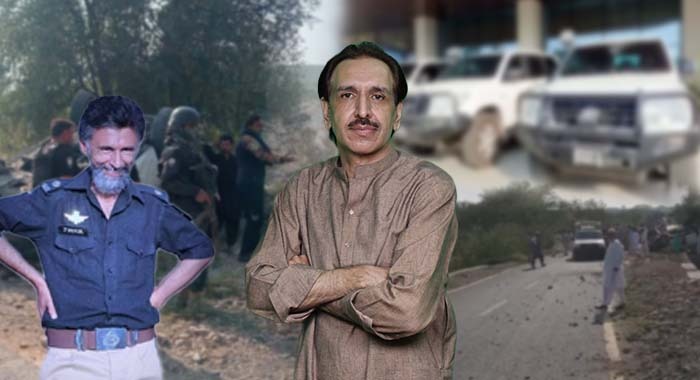Aqeel Yousafzai
The recent martyrdom of two police officers, including SP Zubair, in the Hangu bombing once again lays bare the grim reality that Khyber Pakhtunkhwa remains the frontline of Pakistan’s unfinished war against terrorism. The tragedy exposes not only the persistence of militancy but also the provincial government’s chronic failure to equip and protect its own forces.
If an SP in a district like Hangu does not even have a bulletproof vehicle or the essential counterterrorism equipment, how can we expect peace to hold? The issue is not merely one of security but of priorities. For years, political point-scoring and institutional neglect have crippled the province’s ability to defend its own defenders. The recent refusal to accept bulletproof and bombproof vehicles from the federal government—vehicles built to international safety standards—was an act of political ego that cost lives.
The Counter-Terrorism Department (CTD) in Khyber Pakhtunkhwa has fewer than 3,200 personnel less than a third of Punjab’s—despite facing far greater threats. Experts believe the province needs at least 5,000 CTD officers and modern facilities to counter the scale of violence it confronts daily. Yet the government remains busy in political rhetoric while the police fight an asymmetric war with inadequate protection.
These weaknesses cannot be separated from the larger regional context. The banned Tehreek-e-Taliban Pakistan (TTP) continues to operate from Afghan soil despite repeated assurances from Kabul under the Doha Agreement that Afghan territory would not be used for terrorism against any country. The ongoing Istanbul talks may offer some diplomatic hope, but optimism must be tempered by realism: militant groups have shown little regard for agreements or commitments.
Afghanistan now faces mounting pressure from global powers China, Russia, the United States, Turkey, and Saudi Arabia to act decisively against transnational terrorism. Yet the Taliban regime’s reluctance to curb the TTP reveals either a lack of capacity or unwillingness to risk its own internal cohesion. This ambiguity continues to cost Pakistan dearly in lives and stability.
However, Pakistan must also confront its internal failures. For too long, national discourse has blamed external factors while ignoring the state’s own negligence. The truth is that Pakistan has become self-sufficient in terrorism our security lapses, governance voids, and political divisions have all created fertile ground for militant resurgence.
The forthcoming APEX Committee meeting, called after months of inactivity, offers an opportunity to reset priorities. It must not be another ceremonial gathering. The Governor, Corps Commander, and key federal representatives must be included to ensure coordination between provincial and national strategies. Counterterrorism cannot succeed if reduced to a provincial political agenda.
At the same time, emerging reports that India is financing dam projects inside Afghanistan raise new strategic concerns. Under the guise of “development cooperation,” New Delhi may be attempting to manipulate regional water resources to Pakistan’s disadvantage. This development underscores that Pakistan’s security vulnerabilities are not only internal but increasingly geopolitical.
Pakistan’s war against terrorism will not be won through rhetoric, blame, or bravado. It will require honest governance, institutional coherence, and a shared understanding that security is not a slogan—it is a state’s foremost responsibility. The blood of Hangu’s martyrs demands more than condemnation; it demands accountability, planning, and the courage to put politics aside for the survival of those who protect us all.





